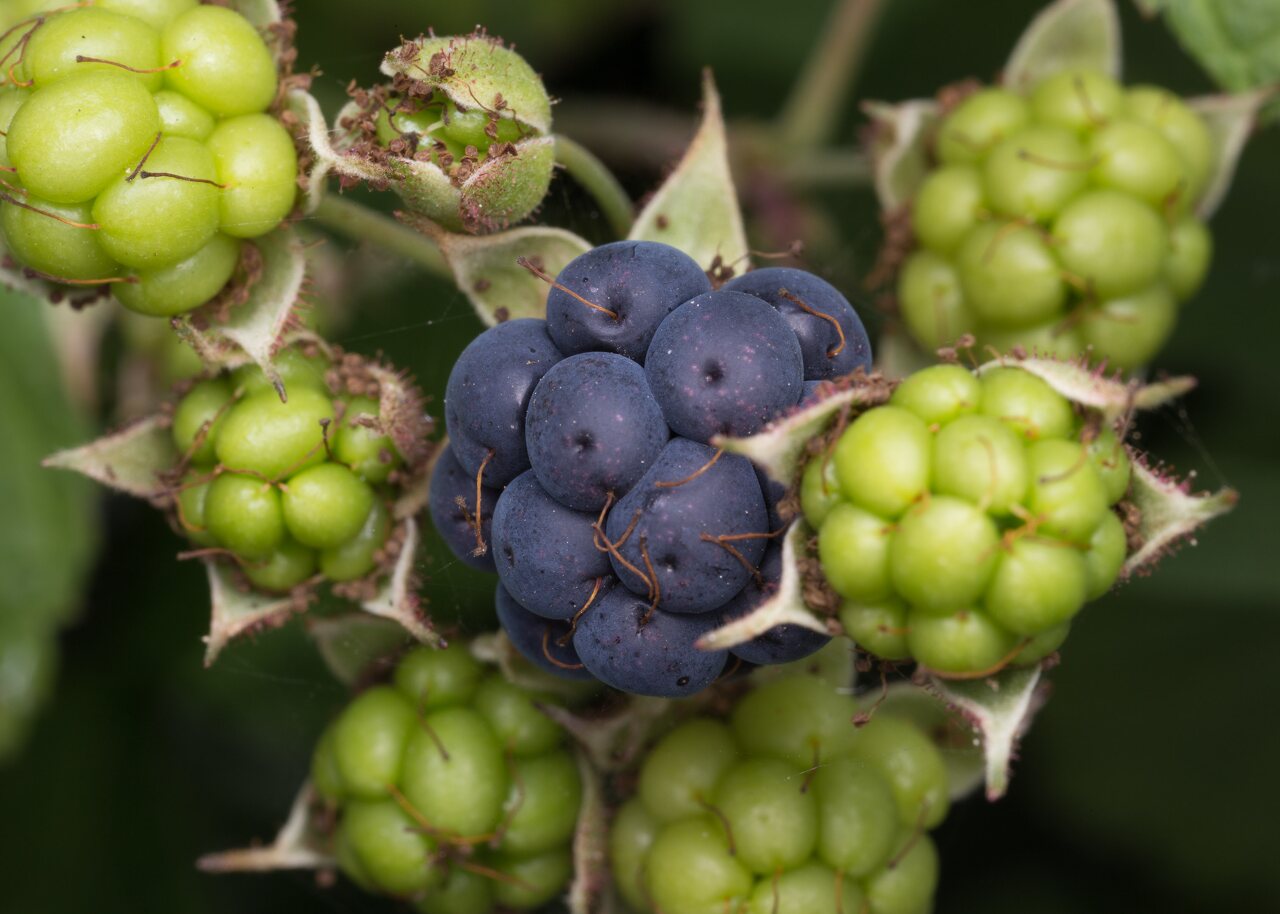
Rubus caesius · paprastoji gervuogė
- European dewberry
- Kratzbeere, Bereifte Brombeere, Bockbeere, Kroatzbeere, Ackerbeere
- paprastoji gervuogė
- zilganā kazene
- jeżyna popielica
- jnecology.uk/rubus/accounts/caesius.htm
- luontoportti.com/en/t/1373/dewberry
- en.wikipedia.org/wiki/Rubus_caesius
It is widely distributed across much of Europe and Asia as far east as Xinjiang Province in western China. It has also become sparingly naturalized in scattered locations in Argentina, Canada, and the United States.
Rubus caesius is a small shrub growing up to 2 m tall with biennial stems which die after fruiting in their second year. It sends out long runners which root at the tip to form new plants. The stems are bluish-grey and sometimes prickly. The alternate leaves are hairy above and below. They are stalked and the leaf blades are palmate in shape, either consisting of three oval leaflets with serrated margins and acute points or just being three-lobed. The inflorescence is a loose cluster of several white flowers about 2.5 cm in diameter. The calyx has five sepals and the corolla is composed of five spreading petals with finely toothed margins. There is a boss of stamens in the centre and there are several pistils. The fruit is an aggregate of several black, fleshy drupes with a bluish waxy bloom. The dewberry flowers from June to September.
Šis puskrūmis turi gerai išsivysčiusį šakniastiebį ir šliaužiančius, arba stačius iki 3 metrų ilgio tankiai dygliuotus, apvalius, įsišaknijančius, su melsvu apnašu stiebus; Lapai sudėtiniai, su 3-5 lapeliais, raukšlėti, iš abiejų pusių žali ir kiek plaukuoti, stambiai dantyti; žiedai stambūs, iki 3 cm skersmens, balti, kartais rausvi, susitelkę skėtiškose kekėse; vaisius – beveik juodos spalvos, melsvu apnašu, sultinga, saldžiai rūgšti uoga, sudaryta iš daugelio mažų uogelių. Auga pamiškėse, miškuose, daubose, pakelėse. Žydi gegužės – birželio mėnesiais. Uogos prinoksta liepos – rugpjūčio mėnesiais.
‥
0 comments
Add a comment
Comments